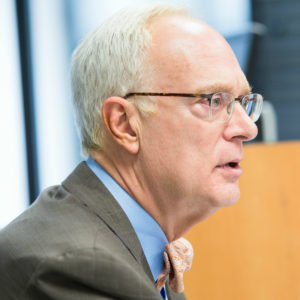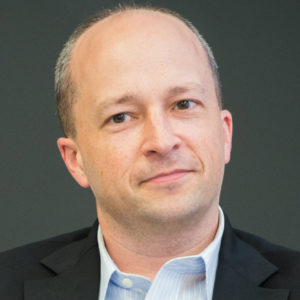American Democratic Capitalism
Explore the intersection of theory and practice in our national politics, and particularly in our key economic debates.
Summer 2012
Washington, DC
Washington is in a regulatory growth spurt. Hundreds of rule-making proceedings are underway or impending under the Wall Street Reform and Consumer Protection Act (Dodd-Frank) and the Patient Protection and Affordable Care Act (ObamaCare), both enacted in 2010. The Environmental Protection Agency (EPA) is pursuing many hugely expensive pollution-control initiatives. The Federal Communications Commission (FCC) wants to regulate the Internet. Agencies are tightening highway fuel-economy standards and banning the incandescent light bulb. Federal price controls, out of favor since the wage-price controls of the 1970s, are making a comeback in health insurance and debit cards.
Congressional Republicans are up in arms over these developments. The arrival of the Tea Party class of 2010 produced prompt moderations in the trajectories of taxing, spending, and borrowing, all of which require periodic legislation. Yet the current partisan divide is illusory. The modern regulatory state is a thoroughly bipartisan enterprise. During the half-century before President Obama’s election, the greatest growth in regulation came under Presidents Richard Nixon and George W. Bush. And the Bush administration set the stage for many of the Obama initiatives that Republicans are now attacking.
In this seminar, students will explore the challenges of regulatory growth. What are the sources and consequences of regulatory power? Can our regulatory state be reformed, and what strategies might be effective in constraining regulatory power?
Photo from Pixabay
Christopher DeMuth on reforming the administrative state

Christopher DeMuth is a Distinguished Fellow at the Hudson Institute in Washington, D.C. He was President of the American Enterprise Institute for Public Policy Research from 1986–2008 and D.C. Searle Senior Fellow at AEI from 2008–2011.

Christopher DeMuth is a Distinguished Fellow at the Hudson Institute in Washington, D.C. He was President of the American Enterprise Institute for Public Policy Research from 1986–2008 and D.C. Searle Senior Fellow at AEI from 2008–2011.
A graduate of The Lawrenceville School, Harvard College, and the University of Chicago Law School, Mr. DeMuth was staff assistant to President Richard Nixon in 1969–1970, working on urban and environmental policy, and, during President Ronald Reagan’s first term, was administrator for information and regulatory affairs in the Office of Management and Budget and executive director of the Presidential Task Force on Regulatory Relief. From 1976–1980, he taught at the Harvard Kennedy School of Government and directed the Harvard Faculty Project on Regulation. He has also practiced law (with Sidley & Austin in Chicago and at the Consolidated Rail Corporation in Philadelphia) and been an economic consultant (with Lexecon, Inc.), and was for a time publisher and editor-in-chief of Regulation magazine (now published by the Cato Institute). He is currently a director of State Farm Mutual Automobile Insurance Company and of several nonprofit organizations.
DeMuth was raised in Kenilworth, Illinois, and lives in McLean, Virginia. He and his wife, Susan DeMuth, MD, have three grown children and seven grandchildren. His writings are posted at www.ccdemuth.com.
Readings:
Discussion Questions:
Readings:
Discussion Questions:
Readings:
Discussion Questions:
Readings:
Discussion Questions:
Readings:
Discussion Questions:

Yuval Levin
Yuval Levin is a Resident Scholar and Director of Social, Cultural, and Constitutional Studies at the American Enterprise Institute and the Editor of National Affairs magazine. Mr. Levin served on the White House domestic policy staff under President George W. Bush.

Christopher DeMuth
Christopher DeMuth is a Distinguished Fellow at the Hudson Institute in Washington, D.C. He was President of the American Enterprise Institute for Public Policy Research from 1986–2008 and D.C. Searle Senior Fellow at AEI from 2008–2011.

Adam J. White
Adam J. White is the Laurence H. Silberman Chair in Constitutional Governance and senior fellow at the American Enterprise Institute, where he focuses on the Supreme Court and the administrative state. Concurrently, he codirects the Antonin Scalia Law School’s C. Boyden Gray Center for the Study of the Administrative State.

Matthew Continetti
Matthew Continetti is the director of domestic policy studies and the inaugural Patrick and Charlene Neal Chair in American Prosperity at the American Enterprise Institute (AEI), where his work is focused on American political thought and history, with a particular focus on the development of the Republican Party and the American conservative movement in the 20th century.